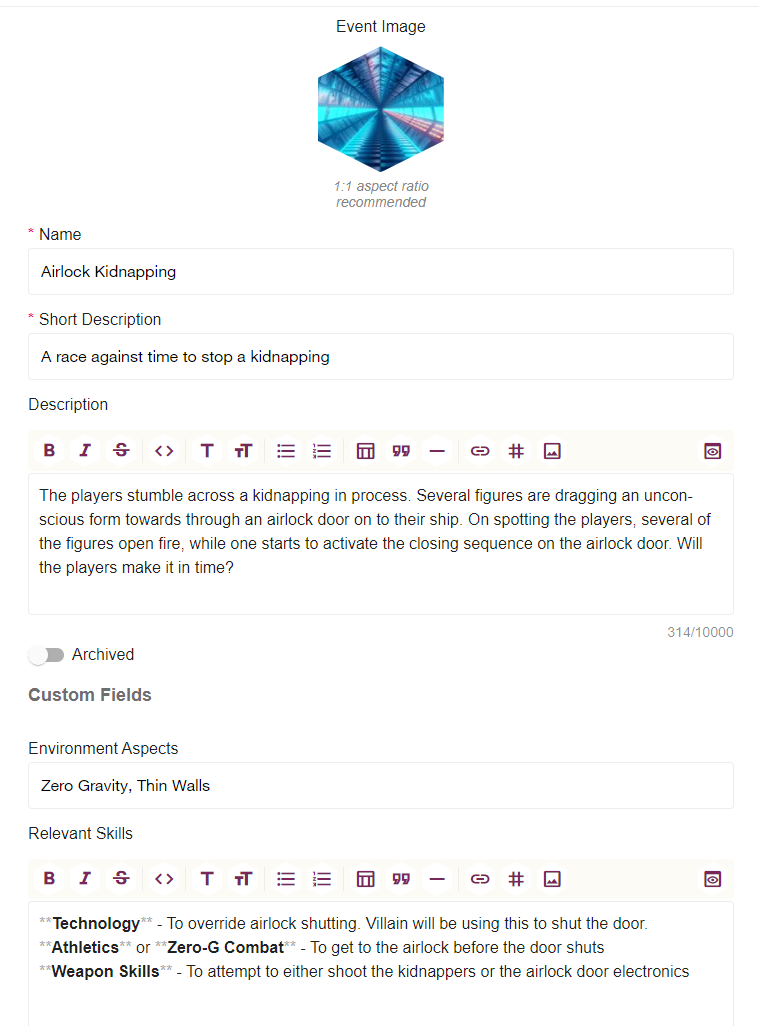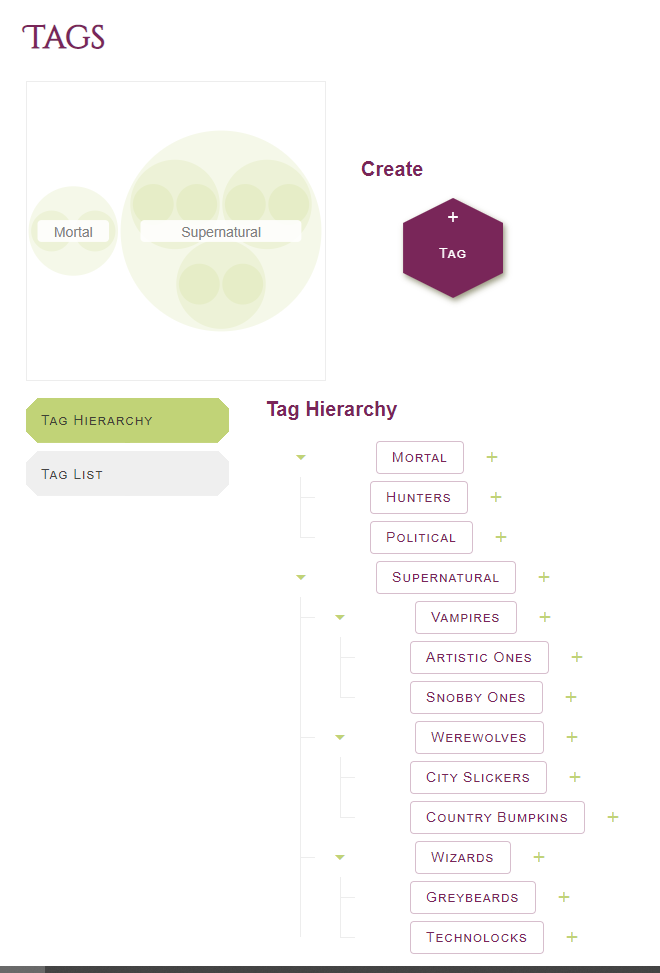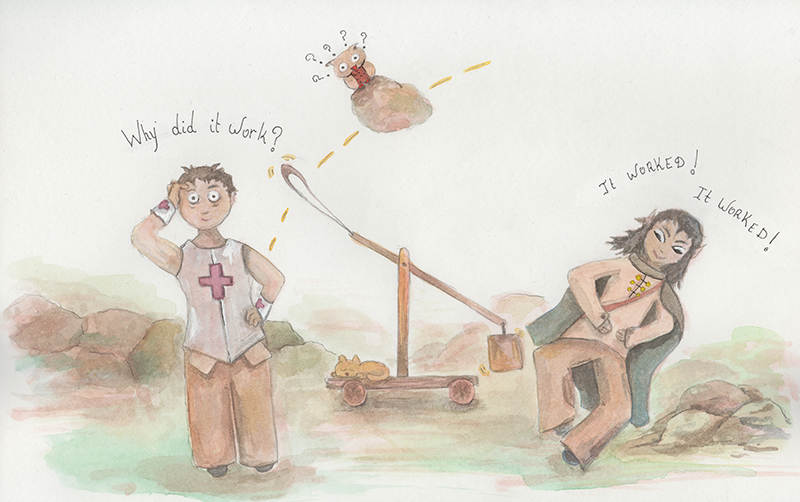Greetings, Gamers!
Greetings, Gamers!
Happy Friday, everyone! Are we all getting settled into 2022 okay? We’re back with some more news and features about our system, so grab your morning beverage of choice (or evening beverage, we don’t know when you’re reading this, to be honest), and let’s take a look at how Custom Fields and Tags work to help you organize your game.

While we’re working hard to make sure we include everything we can in Lore Link, we know that there are far too many awesome systems out there, whether published by a big company, an indie press, or that incredible homebrew you’ve been working on for years (you’re doing great, by the way) for us to be able to design for all of them. So, to that end, we’re making sure that every piece of Lore has the option for Custom Fields. Maybe you want to track weight for all the items in your system, feel the need to record some extra details for a particular villain that doesn’t really fit into our default “Description” field or want to add some system-specific fields. For example, let’s say that you’re setting up a tense kidnapping Event in an airlock hallway in a space station.
If you’re using the FATE system, you might want to record environmental aspects the players can invoke or list some ideas for skills the players and NPCs might use during the contest. Simply add these custom fields to the Lore, and now you can break them out in an easy-to-read format for when the Event goes down.
Now you might be thinking that it seems like a bit of a pain to add all of these fields every time you want to create a system-specific piece of Lore, and you’d be right! That’s why we made sure that Custom Fields work with templates. So if you want to create a FATE specific Event Template for all events that take place on the Space Station, you can set up fields for Environmental Aspects that can be invoked or compelled, response times for NPC security forces, and other items that would be important to any Events that took place on the station.


Something else that varies from system to system is the various locations, factions, secret cabals, monster races, etc., that you might intertwine throughout your story as you build it. If you’re running a World of Darkness campaign, for example, it might be important to keep track of what people, places, or even events in your city are being run by which supernatural group. Is this part of the city run by vampires? Is this political fundraiser secretly run by wizards, and if so which group of wizards? That’s why we created the Tag system. Create a tag for the vampires and be able to quickly identify what assets they own in your campaign. Create a tag for a city to make it easier to identify which town that particular safe house is in. You’ll also be able to quickly see and add new Tags from the Tag interface next to the Lore’s name at the top of the page.
As you can see, we’re doing what we can to help make it as easy as possible to put as much information as you want, or need, into Lore Link to help make your game run smoothly. So with that, we’re going to wrap up this month’s newsletter. Before we go, however, I would like to remind you all to keep your eyes open for an extra email from us, asking if you’d like to join in on the next round of testing.
We hope you are doing well, staying healthy, and your dice are treating you favorably! We’ll see you next month!



